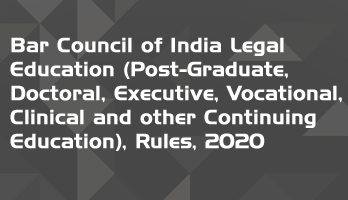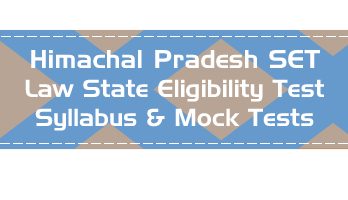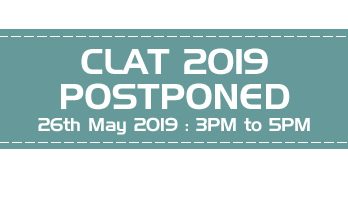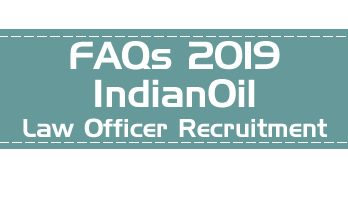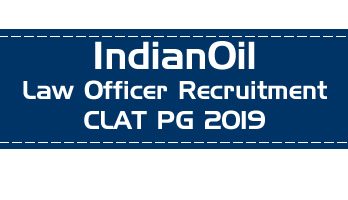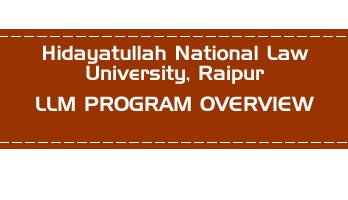Q : If I have passed telephonic, HR and legal interview. Now the company calls me for final interview. What does that mean? Have I got the job or there is something else?
Ans :
Well, it could mean just that – you have been called for a ‘Final Interview’
If you have already got the job – they would have sent you the offer letter or called you to discuss the offer.
If you have not been short-listed – they would not have called you for the ‘final interview’ at all.
Realistically, a ‘Final Interview’ could be interpreted as you have done well with all your previous rounds, but you will still have to meet the decision makers ‘in person’ before they take the final call on the offer / no offer.
Also, many companies do insist on meeting all candidates in person before making the offer – even if it just to validate that it is actually the same person who gave the telephonic interviews, cleared the online selections etc. – You can call this a ‘Validation round’
To summarize: Don’t think too much about it. You must have done well to be called for the ‘Final round’.
This may simply be a ‘validation round’ or they might be looking at deciding between 2 or 3 ‘Final short-listed candidates’ to make the final offer.
Attend the interview with confidence and you will do well. Best Wishes 🙂
Q : How should I apply for job as a fresher?
Ans :
Everybody is a fresher before their first job 🙂
Yes, you can. Just log onto
Q : What are the startups that are still not in India?
Ans :
In reality, there are 10000’s of start-ups from across the world that are still not in India.
For the sake of answering this question, let us focus on the ‘Top’ start-ups – The so called ‘Unicorn’ start-ups, which have been valued at 1 Billion US Dollars or more.
Since valuations keep fluctuating, let us use the Fortune Magazine’s 2016 Unicorn list as the baseline. (Some companies may have fallen off the list in e.g. Theranos)
The assumption here is that with a Billion dollar valuation, a company can have the scale and access to the funding required to start their operations in India. (If there is a market for such a business or service in India and if it makes business sense to actually have a presence here.)
While calling a company an Indian start-up, we will not factor-in the ‘incorporation location’ e.g. Flipkart – Singapore, since this arrangement is for taking advantage of tax benefits, incentives, attracting investors etc. For all practical purposes, they are Indian start-ups.
When we look at the list of the top 174 Unicorns, we see that there are companies which are :
- Indian start-ups – Flipkart, Ola, Quikr, Zomato etc.
- Already present in India – Uber, Xiomi, Airbnb
- Predominantly ‘Online’ so they can have users or customers from India without having any physical presence here – Cloudflare, Snapchat, Pinterest
- no corporate presence in India, but their products are already imported and sold here by partners / dealers – Jawbone, DJI
- which have invested in Indian start-ups, so indirectly have a ‘foot in the door’ – Delivery Hero (Germany) in Food panda (India)
- are not yet present in India because of :
- niche or specialised services, which may not have a market in India yet, or too expensive for the Indian market at this time – Palantir, SpaceX, Bloom Energy
- competition already quite well-entrenched in India – Lyft, Instacart
- India expansion is in their plans for the future
Now, you can go through the list of 170+ 2016 Unicorns below and a little bit of Googling will help you classify them into any of the above 6 statuses.
Note: The only thing constant with a start-up is change 🙂 So before you point out that the status of one of the examples I have given is wrong, let me clarify that I did not intend to write a Phd thesis and did not research thoroughly – some of the statuses may have changed.
For example, Instacart may be starting services in India. Stripe is looking at starting services in India. There may be companies which are not ‘operating’ in India, but have a presence by way of Support / Development teams based in India.
So, this answer is indicative not definitive.
Unicorn List (Fortune 2016) : Go through the list, do a little research and you will have a usable list of “startups that are still not in India”
Company Name – Primary Business – Base location
Uber – Transportation services – San Francisco, USA.
Xiaomi – Consumer electronics – Beijing, China
Airbnb – Lodging services – San Francisco, USA.
Palantir – Data analytics software – Palo Alto, USA.
Didi Kuaidi – Transportation services – Beijing, China
Snapchat – Social media – Venice, USA.
China Internet Plus – Internet services – Beijing, China
Flipkart – E-commerce – Bangalore, India
SpaceX – Aerospace – Hawthorne, USA.
Pinterest – Social media – San Francisco, USA.
Dropbox – Cloud storage – San Francisco, USA.
Lufax – Financial services – Shanghai, China
WeWork – Coworking – New York, USA.
Theranos – Health care – Palo Alto, USA.
Spotify – Streaming media – Stockholm, Sweden
DJI – Robotics – Beijing, China
Zhong An – Insurance – Hong Kong
Intarcia Therapeutics – Biotechnology – Boston, USA.
Lyft – Transportation – San Francisco, USA.
Coupang – E-commerce – Seoul, South Korea
Ola (aka Olacabs; dba Ani Technologies) – Transportation – Bangalore, India
Snapdeal – E-commerce – New Delhi, India
Stemcentrx – Cancer treatments – San Francisco, USA.
Stripe – Mobile payments – San Francisco, USA.
Zenefits (dba YourPeople) – Business Software – San Francisco, USA.
Social Finance (aka SoFi) – Financial services – San Francisco, USA.
Vice Media – Media & entertainment – New York, USA.
Tanium – Business software – Emeryville, USA.
UCar (dba Shenzhou Zuche) – Transportation – Beijing, China
Credit Karma – Financial software – San Francisco, USA.
Global Fashion Group – E-commerce – London, U.K.
Jawbone (dba AliphCom) – Consumer electronics – San Francisco, USA.
Meizu – Consumer electronics – Zhuhai, China
CloudFlare – Web publishing – San Francisco, USA.
Delivery Hero – Food delivery – Berlin, Germany
Machine Zone – Video games – Palo Alto, USA.
Bloom Energy – Alternative energy – Sunnyvale, USA.
DocuSign – Business software – San Francisco, USA.
Q : Does the percentage of marks obtained in an LLB matter?
Ans :
Depends on what you intend to do with your LLB degree.
If you intend to start your own Private Practice of Law :
Your LLB marks don’t matter.
Even if you just pass your LLB, you will receive your degree, you can start your practice, take up AIBE.
Your clients will not ask you how much you scored in your LLB. Just like we don’t ask Doctors what were their MD / MBBS marks 🙂
But what will definitely matter here and make you an effective Advocate will be your:
– practical knowledge in the areas of Law you are practicing
– ability to identify and apply the relevant sections, case-laws, legal precedents etc.
– your PR management, negotiation, business development and networking skills
If you intend to take up any Judicial Services exams or Indian Army JAG after practicing for a few years:
Indian Army JAG clearly specifies 55% in LLB as the minimum marks. State Judicial Services exams may not specify any minimum marks, but 45% is the cut-off for General category (if specified).
However, you will have mentioned your marks in the application forms and your LLB scores may induce a positive / negative bias with the interviewers during any personal interview part.
So you can safely assume here that better marks in LLB will overall improve your chances of selection.
If you intend to take up employment on the basis of your LLB :
Yes, your LLB marks will matter.
Typically when you are being recruited as a ‘Fresh’ LLB graduate, you have to explicitly state your LLB marks in your CV; since you are being hired on the basis of your LLB.
If there are multiple applicants, LLB marks will be one of the main criteria for initial short listing.
However, as you gain more and more experience, marks will be irrelevant, as you will be hired for senior roles on the basis of your practical experience and knowledge.
If you intend to pursue higher education (in a Tier-1 or Tier-2 institution) :
Yes, your LLB marks will matter.
There will be a cut-off marks prescribed by the institution and many institutes have a weightage for your degree scores.
Q : Why do people choose BA+LLB even B.Tech +LLB?
Ans :
Simple, you save one year (may even two years !)
BA = 3 years
LLB = 3 years
————————
Time required = 6 years
BA LLB = 5 years
You save one year.
B Tech = 4 years
LLB = 3 years
————————-
Time required = 7 years
B Tech LLB = 6 years
You save one year.
BA = 3 years
Gap due to delayed BA results or over lap in BA final results & LLB admissions deadline or preparation period for getting admission into a good Law college = 1 year
LLB = 3 years
————————
Time required = 7 years
BA LLB = 5 years
You save two years!
If doing law is your goal, it makes sense to take up a BA LLB or BBA LLB
It saves you time and also the effort of having to go through the admissions process again.
B Tech LLB as offered by UPES is a very unique combination which opens up career opportunities in two different fields. If you can get in, you should take it up.
On the flip side :
BBA LLB / BA LLB / B Tech LLB is a long term commitment, with a significant lock-in period.
Unless there is a ‘exit’ provision which allows you to opt out of the program after 3 years / 4 years and get at least one degree, if you drop out any time midway, you will not get any degree.
You will not have an opportunity to change your mind midway and pursue some other degree or get into full time employment for a couple of years midway.
Q : Are the results of UP board class 12th valid in top IIMs?
Ans :
No and Yes.
‘No’ because: IIMs offer PG (Post Graduate) programs.
You cannot enrol in any IIM program with just a class 12 qualification.
You need to be a graduate in any stream before taking up the CAT (Common Admission Test) for admission into any IIM.
Currently there are no ‘Integrated’ programs such BBA MBA etc.
‘Yes’ because: There is a certain amount of weight given to previous academic performance, which would be class 12 also.
For this purpose, the UP class 12 results will be considered by the IIMs.
Q : Is a person finished LLB degree without registered in bar council can be a lawer?
Ans :
Yes & No
First of all, let us differentiate between a ‘Lawyer’ and an ‘Advocate’ in the Indian context.
Lawyer : If you have completed your LLB degree (recognized by the BCI), you can call yourself a Lawyer.
Advocate : If you are a Lawyer; and you are ‘practicing Law’, you can call yourself an ‘Advocate’
A person who has completed LLB, but takes up employment with any company; or is engaged in any other business or profession, continues to be a Lawyer (because of the LLB degree), but is not an advocate.
If the person is primarily engaged in Legal practice and is actually representing clients in a court of Law, then it is considered to be ‘Practicing Law’ and the person can call himself an ‘Advocate’
To summarize : “All Advocates are Lawyers, but all Lawyers are not Advocates.”
If you have completed your LLB and do not intend to practice Law as an Advocate, you need not enrol with any Bar Council.
However, if you wish to practice as an Advocate:
– you have to enrol with the State Bar Council.
– start practicing as a Advocate.
– clear the All India Bar Exam within two years of enrolment.
– if not, pause practice till you clear the AIBE and then recommence practice.
BCI Recognized LLB = Lawyer
Lawyer + Bar Council Registration + AIBE + ‘Practicing Law’ = Advocate
Q : What is the maximum age for enrollment of advocates in the bar council of India?
Ans :
I just answered the same question elsewhere on a website.
Here is the answer:
As of now, no age limit.
If you have completed your LLB, you can enrol with the State Bar Council as an advocate at any time.
I know a person who completed his LLB when he was in his 20s. Served as a Government officer for more than 30 years. Retired from service and decided to practice law. Enrolled with the State Bar Council when he had crossed 60 years. He has been an Advocate for a few years now.
Note: Since he cleared his LLB before the academic year 2009–10, the AIBE (All India Bar Exam) is not mandatory for him.
Q : Does the Bar Council of India send preparatory material to the candidates appearing in the All-India Bar Examination?
Ans :
No, BCI has stopped sending out any official preparatory material for the AIBE.
Currently BCI publishes only the syllabus for the AIBE exam and students can either
– use their LLB course material to prepare for the AIBE or
– there are companies which provide Study material, Model question papers, Old question papers and Mock tests for AIBE
The old ‘official’ BCI study material is still available for download. Refer to the article on
Q : Does the Bar Council of India approve the 4-year LLB degree at NUS Singapore?
Ans :
A degree in law from a foreign University, obtained by an Indian national or a person of Indian Origin having double citizenship in India who has completed 21 years of age, can be recognized for the purpose of enrolment as an advocate if certain conditions are fulfilled.
Degree in Law from University of Singapore (NUS) is recognized by the BCI.
Details about recognition of foreign Law Degrees:
Q : What is the age limit for a law graduate to enroll into the Indian bar council?
Ans :
As of now, no age limit.
If you have completed your LLB, you can enrol with the State Bar Council as an advocate at any time.
I know a person who completed his LLB when he was in his 20s. Served as a Government officer for more than 30 years. Retired from service and decided to practice law. Enrolled with the State Bar Council when he had crossed 60 years. He has been an Advocate for a few years now.
Note: Since he cleared his LLB before the academic year 2009–10, the AIBE (All India Bar Exam) is not mandatory for him.
If you are taking the Bar exam this year, do check out our
Q : Is it mandatory for an Advocate to become a member of any local bar association?
Ans :
Yes & No
First of all, let us differentiate between a ‘Lawyer’ and an ‘Advocate’ in the Indian context.
Lawyer : If you have completed your LLB degree (recognized by the BCI), you can call yourself a Lawyer.
Advocate : If you are a Lawyer; and you are ‘practicing Law’, you can call yourself an ‘Advocate’
A person who has completed LLB, but takes up employment with any company; or is engaged in any other business or profession, continues to be a Lawyer (because of the LLB degree), but is not an advocate.
If the person is primarily engaged in Legal practice and is actually representing clients in a court of Law, then it is considered to be ‘Practicing Law’ and the person can call himself an ‘Advocate’
To summarize : “All Advocates are Lawyers, but all Lawyers are not Advocates.”
If you have completed your LLB and do not intend to practice Law as an Advocate, you need not enrol with any Bar Council.
However, if you wish to practice as an Advocate:
– you have to enrol with the State Bar Council.
– start practicing as a Advocate.
– clear the All India Bar Exam within two years of enrolment.
– if not, pause practice till you clear the AIBE and then recommence practice.
What happens if you enrol with the State Bar Council and then decide to take up full-time employment?
Your status as a ‘Practicing’ lawyer will be suspended and you are free to take up full-time employment or any other Business / Profession.
You can get your status as a ‘Practicing Lawyer’ back into active status at any time in the future by applying to the Bar Council.
Note: If you have not cleared the AIBE within 2 years from your initial enrolment with the state Bar Council, you will have to clear it before you recommence practice.
For example,
– A person completed LLB in July 2011.
– Enrolled as an advocate with the State Bar Council in Jan 2012.
– He can practice without clearing AIBE for 2 years (Grace period from date of enrolment)
– Practised for around one year – till Jan 2013, but did not clear AIBE
– Joined a company as a full-time employee in Feb 2013.
– Continued to be an employee till Jan 2015.
– Decides to go back to practicing as a Advocate from Feb 2015.
His status as a ‘Practicing Lawyer’ would have been put into a Suspended mode by the Bar Council from Feb 2013 onwards. Since it has been more than 2 years since the original enrolment, the person can start practice again only if he has cleared the AIBE.
Else, he has to first clear the AIBE and then restart private Law practice.
If you are taking the Bar exam this year, do check out our
Q : Certain foreign universities are recognised by BCI. What does this mean?
Ans :
A degree in law from a foreign University, obtained by an Indian national or a person of Indian Origin having double citizenship in India who has completed 21 years of age, can be recognized for the purpose of enrolment as an advocate if a specific set of requirements are fulfilled.
The BCI recognizes Law Degrees or Law Qualifications of 80 Universities from 13 countries. (Subject to certain terms and conditions)
A bulk of these international recognitions are programs from :
- UK (35 Universities)
- US (16 Universities)
- Australia (13 Universities)
However, to be able to practice in India, holders of the recognized degrees have to clear a qualifying exam held by the BCI.
You can see the complete list (published in 2012) at this link:
Q : Is a B.Tech in LLB from UPES approved by the Bar Council of India?
Ans :
Yes. The course is recognized by the BCI
To correct your question, the course is not a B Tech in LLB, it is a “B.Tech (CSE) LLB (Hons.)” – A dual degree program.
You can see the BCI approval notification at this URL :
Q : Which are the professional courses after a BCom?
Ans :
Options after BCom – Quite a few !
I will not talk about the latest fads and technology related professional courses. Let us stick with courses that have been around for a while and will continue to be relevant for a long time to come.
CA – Chartered Accountancy : While CS and ICWA continue to be relevant; in terms of career prospects, I could any day suggest taking up a CA qualification.
If you complete your CA, there are number of subject-wise exemptions for CS & ICWA – so you can complete them as well with a little more effort.
The CA institute is also quite active in terms of annual campus placements.
There are 68 companies participating in the campus program this month (Aug 2017) to hire fresh CAs, including – Barclays, Bharat Petroleum, Birla, Capgemini, Caterpillar, Dell, Deloitte, Hero, Coca Cola, IDBI, Indian Oil, Infosys, ITC, John Deere, L&T, PWC, Reliance, Shell, TCS, TATA, Tesco, Toyota-Kirloskar, Whirlpool, WIPRO
MBA from a Tier 1 B-School : While there will be some seasonal ups and downs in sync with the economy, there is always a demand for good MBAs.
Here, I would suggest picking up 2 ~ 4 years of work experience after BCom or completing any other professional course (LLB / CA / CPA etc.) and simultaneously preparing for a good B-school (IIMs / ISB / IMT / XLRI / FMS etc.)
Your work experience and / or the additional qualifications will also help score additional points during the selection process; and also help you with your placement.
LLB : The demand for LLB grads from good Law Schools has been increasing year after year.
While there is definitely the option of starting your own private practice at some point in time; increasing globalisation and opening up of the economy is leading to an increased demand for LLB grads with good communication and research skills.
Aim for the National Law Schools or top Law schools affiliated to good Universities in India.
A LLB degree also opens up avenues to taking up state Judicial Services exams.
CPA, CIMA, ACCA, CMA, CFA (US) : These are international accounting qualifications. There are somewhat ‘niche’ but opportunities do exist with several MNC companies.
Bottom-lines :
- If you wish to take up a professional course immediately, I would suggest taking up CA.
- If you can wait till the next academic year, prepare for the entrance exams (e.g. CLAT) for Tier-1 law schools and take up LLB from the next academic session.
- If you are planning to take up an MBA, aim for Tier-1 B-schools. In which case:
- take up a job to add experience to your profile
- pursue some additional qualifications to add value to your profile and as a ‘plan-B’ in case you don’t make it to a B-school
- prepare for the entrance exams for the tier-1 B-schools in parallel
Q : What course can be pursued after BBA LLB?
Ans :
Depends on your career aspirations and personal preferences.
If practicing Law is your goal, you should ideally
– start your apprenticeship with a good lawyer or law firm
– enrol with the state Bar association as a practicing lawyer
– start preparing for your AIBE – All India Bar Exam
– take up a LLM program, MBA program or a specialisation course via correspondence or distance education
If pursuing full-time PG in Law is your next step, you should ideally
– enrol with the state Bar association as a practicing lawyer
– start preparing for the AIBE (Bar Exam)
– In parallel, you should start preparing for the LLM entrance exams (AILET PG / CLAT PG / DU LLM entrance)
– bag a seat in a premier college to pursue a full time LLM from the next academic session
If diversifying your academic qualifications is your idea, you should
– enrol with the state Bar association as a practicing lawyer
– start preparing for the AIBE (Bar Exam)
– In parallel, you should start preparing for MBA entrance exams (GMAT, XAT, CAT etc.)
– bag a seat in a premier B-School to pursue a full time MBA from the next academic session
To summarize the answer :
- Aim at clearing the AIBE at the earliest after your LLB – while you are still fresh with your LLB subjects
- If practicing law is your goal – start off early and start building your firm. You can take up a distance LLM / MBA for additional qualifications
- If corporate employment is your aspiration, look at getting into a LLM or MBA program in a Tier-1 college
Q : What are the advantages of doing a BA LLB?
Ans :
I answered the same / similar question earlier during the day. That was about BBA + LLB, your question is about BA + LLB. But the answer will be the same – just read BBA as BA if you wish 🙂
Let us look at the question from a time point of view.
- BBA degree is a 3 year program
- LLB degree is a 3 year program
So if you complete your BBA first and then take take up LLB, you will have spent 6 years to obtain your BBA + LLB.
An integrated dual-degree 5 year LLB program will give you a BCom / BBA / BA + LLB – so you save one year.
Let us look at the question from a career plan point of view.
If your aspiration is to ultimately pursue a law degree, it makes sense to enrol in a integrated BBA LLB program.
But remember :
– It is a five year commitment
– Depending on the College / University rules, you may not get even a BBA degree if you decide to opt out midway.
If you are not sure of your long term career plans, you should complete your BBA first and then decide on a MBA / LLB at a later date.
Let us look at the question from an employment prospects point of view
If you intend to pursue a BBA + LLB integrated five year course, the National Law Schools (National Law Universities) score above regular Universities in terms of campus placements and corporate career opportunities.
The best law firms from across India come to recruit from the NLU campuses; whereas graduates from other Universities will not have the same advantage.
A 5 year LLB graduate from a regular University will be treated by recruiters as on par with a 3 year LLB graduate from same / similar Universities.
[* Some University Law Colleges do have campus placements, but they typically do not attract the Tier-1 law firms]
Bottom-line : The BBA or BBA + LLB decision really depends on your long term career aspirations and personal preference.
BBA+LLB saves you one year, but it requires a five year commitment.
Completing a BBA first will give you an opportunity to choose between MBA / LLB / taking up employment after graduation.
If BBA+LLB is your decision, aim for the National Law Schools and the Top colleges in India to get the maximum ROI from your degree from an employment perspective.
If independent practice is your goal, it doesn’t matter where and how you complete your LLB. You PR management, contacts and business development skills will be the key to success.
Q : What is the latest decision of the Supreme Court regarding the age limit for pursuing 5-year LLB as of today (July 24, 2017)?
Ans :
As of today – 7th August 2017, there is no maximum age for enrolling into a LLB course – either a 3 year or a 5 year program.
BCI has previously notified an upper limit of 22 years for 5 year integrated LLB and 45 years for a 3 year LLB on the 1st of March 2017.
On the 3rd of March 2017, the Supreme court stayed the notification and deemed the upper age limit as not applicable.
The next hearing was supposed to happen during the 3rd week of July 2017. However, there is no update on the case as of now.
Till the Supreme court gives a final decision and BCI changes the rules to implement the age limits in the future, there is no upper limit for LLB admissions.
What happens if the final decision of the Supreme court is in favour of an upper age limit?
The decision will be prospective and not retrospective.
It will not affect students who have already enrolled into any LLB course, it will affect admissions and prospective applicants from the date of the decision.
Update : As of the – 19 academic year admissions, there is no upper age-limit for either the three year / file year LLB and no upper age limit for most LLM courses.
Q : Since we complete a BA after 3 years in a BA LLB (5-year) course, is it possible to pursue a MA degree through distance in the fourth and fifth years?
Ans :
Depends.
To enrol for a UGC recognized MA degree course, you will need to have a BA degree on hand.
You should have graduated and received either the provisional degree certificate or the degree certificate.
If your BA LLB program gives you a BA degree after the third year, you can enrol for MA. Else, you will have to wait for the completion of the course and receive both the BA and LLB.
Some integrated double degree courses do give you one degree if you have completed at least 3 years of the course and wish to opt out. (As long as you have passed all the subjects.) But I don’t think BA LLB or BBA LLB programs have that option.
To summarise : If you can get a BA degree certificate after 3 years of your course, you can use that to enrol for a MA, else you cant.
Q : Who is all eligible to enroll in the Bar Council? Can an LLB (distance education) graduate enroll in the Bar Council of India?
Ans :
Once you complete your LLB from any BCI-UGC recognized college, you can enrol with your State Bar Council as an Advocate.
As of now, there are no correspondence, part-time or distance learning LLB courses in India.
There might be a few ‘Evening colleges’ offering LLB; which are essentially full-tine colleges, but the classes are held towards the later part of the day.
But do reconfirm that the college you are enrolling into is duly approved by BCI and affiliated to a recognized University.



